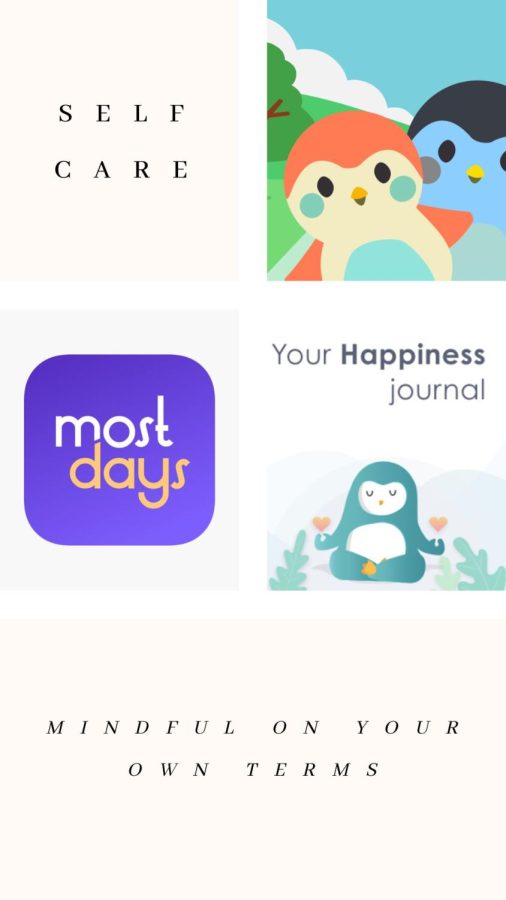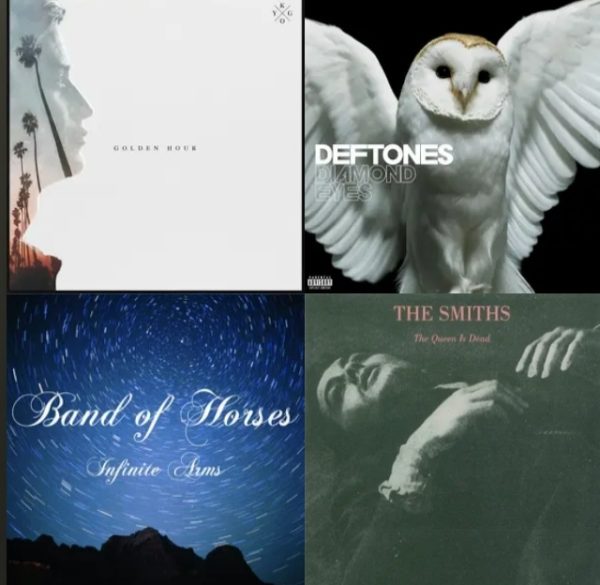Self Care: Mindful On Your Own Terms
Self care is defined as how one takes care of and recognizes the needs of themself. This can come in many forms: a healthy sleep schedule, reminders to take medication and eat, reminders to drink plenty of water and general helpful reminders which can easily slip through the cracks amidst a busy schedule. For some, self care is difficult due to strict, self-imposed ideas that they do not need it or do not deserve it. For others, it is genuinely difficult to remember amidst the chaos of day to day life. Because of this, having a helpful reminder or two from an outside source can be helpful in maintaining a physically and mentally healthy lifestyle while maintaining other obligations and responsibilities in one’s life.
Self care is a topic that has only recently been recognized and validated, as has the excess of people using the internet and utilizing online platforms for their day to day tasks. From this combination, self care apps not only come to exist, but boom in popularity due to their convenience, price and cosmetic appeal. Self care apps like Finch, Most Days and Wysa are some apps that have grown immensely in popularity for these reasons.
Finch is one mobile app that has grown tremendously in popularity because of its creative angle in implementing self care routines. “It reminds me to drink water, take a breather and helps me sleep,” Alana Biggerstaff (‘26) said. Essentially, Finch provides their user with a small pet bird, and to take care of the bird and unlock new cosmetic accessories, the user has to perform small acts of self care. Users can visit other users, send kind messages to their friends and more. “It just helps remind me to do things that I might normally forget,” Grace Peters (‘23) said. Finch is free, however there is a pro version. Unlike some apps though, users can still access a good amount of the app’s services through the free version.
Most Days is a mobile app that helps people create goals, routines to maintain those goals and monitor progress on achieving those goals. “It helps keep track of your to-do list in a growth-mindset manner,” Emma Thomas (‘23) said. It also has group chats with other people that have the same problems as you, holds weekly zoom meetings for mindfulness, and has accountability partners. When using this app I have seen an improvement in my procrastination.” Most Days is subscription-based, but offers alternative methods of payment and scholarships for those who are unable to pay for it.
Wysa is an app that creates a secure and calming environment by blending AI conversations and access to real mental health professionals in the time of a crisis. Wysa is best known for its feature of being able to “chat” with a computer coded to supply techniques and helpful methods to those in need and those who might not feel comfortable or capable of reaching out. Wysa takes real techniques from peer-reviewed clinical research, and even though the chatbot may be AI, the methods are most certainly real. “The app gives people different strategies to help them cope with various emotions,” Alyson Wynn (‘25) said. “For example, bedtime stories for sleep, breathing exercises for stress, support for LGBTQ+ people, and more!”
For most, self-care apps are small parts of their lives, but are helpful in small ways that can make someone’s day or remind them to take care of themselves. “By providing a space to help yourself privately,” Thomas said. Many people don’t want to confide in others or talk to a professional first thing. Self care apps provide a first step into becoming mindful on your own terms.”











